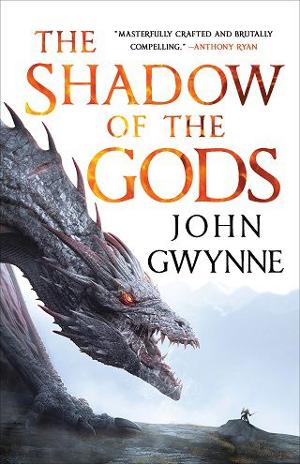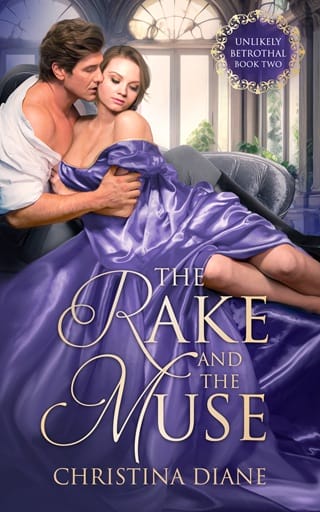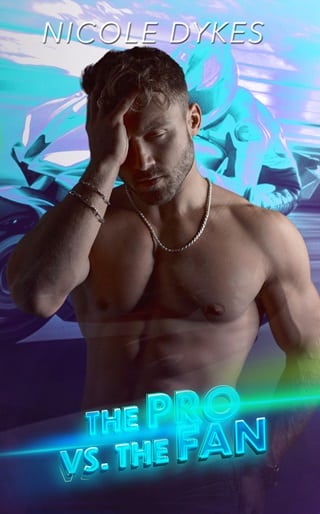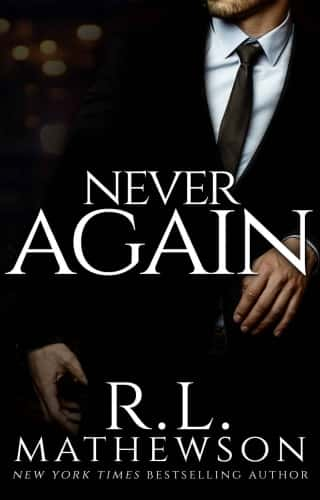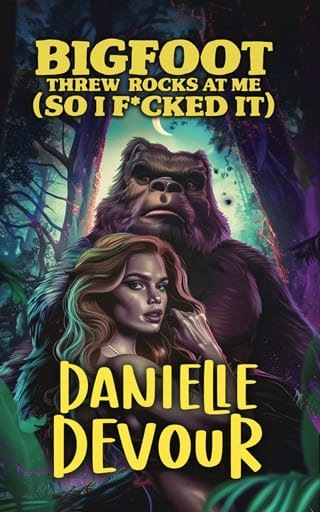Chapter Twenty-Nine: Elvar
CHAPTER TWENTY-NINE
ELVAR
Elvar watched as Agnar walked away, beckoning for Uspa, Sighvat and Kráka to follow him. They walked through a doorway into the landlord’s kitchen and chambers.
“Out,” Elvar heard Agnar say, and the landlord and his wife appeared in the doorway, moving into the tavern’s main room.
Oskutreð, Elvar thought. Uspa said she knows the way to Oskutreð. The great Ash Tree, where the gods-fall battle raged hottest, where Ulfrir and Berser fell. That thought was almost too big for Elvar to comprehend, or to believe. Without realising it she found she was walking after Uspa and Sighvat, Grend following her. She reached the doorway and saw Agnar was seated at a table, Kráka beside him, Uspa sitting opposite him, Sighvat hovering inside the door. Agnar looked up as Elvar tried to walk into the room, Sighvat moving to block her way.
“This is not for you,” Agnar said to her.
Elvar stood and just looked at Agnar.
“I heard her,” Elvar said. “I heard what Uspa told you.” A heartbeat after those words had left her lips the thought crossed her mind that she should have kept them to herself.
Agnar’s face shifted, a flat look filling his eyes, reinforcing that thought. He does not trust me, she realised.
“Come in,” he said.
Elvar stepped into the room, Grend making to follow her, but Sighvat stepped in front of him.
“Him, too,” Agnar said and Sighvat moved to the side, allowing Grend in.
It was a small room, one window and door, the table Agnar was sat at surrounded by clay ovens and a hearth fire with an iron pot hanging over it. A few dozen barrels of ale and various foods were stacked against the walls, jugs of mead on shelves, and there was a long bench with chopping boards, knives and cleavers, and two straw mattresses laid out on cots.
“You heard?” Agnar said.
Elvar nodded. She opened her mouth to say the name, but Agnar held a hand up.
“Are you staying, or are you going?” he asked her.
Elvar frowned, confused.
“Your father’s offer, of a warband if you return to his side. Are you staying with me, or are you going to join him? I told you to tell me when you are ready, but this…” He waved a hand at Uspa. “This changes things.”
There was a tension in the room, Agnar staring at her intently, and she heard Sighvat’s feet shuffle behind her.
Elvar sucked in a breath. She had forgotten all about her father’s offer with the events of the day.
“I am staying with you. With the Battle-Grim,” she said.
A silence fell, all of them staring at her. She felt Grend’s eyes boring into her back.
“You are certain? If you are to be a part of this conversation, then there is no going back from it,” Agnar said. “No leaving me to tell all that you learn here to your father.”
“I am certain,” she said. “A wolf cannot become a lamb.” She looked at Grend as she said those words. They were Hrung’s last words to her. She had pondered it in her thought-cage all through the night, and was certain she had the right of it. Her father had never been trustworthy, not with her. All her life he had tricked her with clever words and half-truths. Even though his offer seemed all she had ever dreamed of, there must be more to it. He would not just give her all she asked for. It was not in his nature, and the wolf could not become a lamb.
Agnar held her gaze, the silence lengthening, and then he nodded.
“Then sit down,” he said, gesturing to a chair.
Uspa was looking down at her hands.
“Oskutreð,” Agnar said to her, “is a myth, a fair-fame tale that warriors like me tell around a hearth fire, to fill our dreams with gold.”
“It is real,” Uspa said, her head snapping up, a twist of her lips. “Look at this world around you, filled with Berserkir and Úlfhéðnar. Look at where we are: sat in a town and fortress built within and upon a serpent’s skull. Of course Oskutreð is real.”
Agnar looked at Kráka.
“All the Tainted know Oskutreð to be true,” Kráka said. “The great tree was at the heart of the gods-fall where our ancestors fell; the Guðfalla is like a song in our blood.”
Agnar looked between the two Seiðr-witches.
“The tales tell of it being beyond the vaesen pit, beyond the Isbrún Bridge, beyond Dark-of-Moon Hills,” Elvar said.
“That is a truth,” Uspa nodded. “It is no tale.”
“And if it is a truth, how is it that you know the way?” Agnar asked her. “Two hundred and ninety-seven years are said to have passed since that day when the gods fell, and yet none have ever found it, despite the tales of relics and riches and power.”
“The Graskinna,” Uspa said. “The Grey Skin, a Galdrabok full of dark magic. It tells the way, for those with understanding.”
“Those with understanding?” Agnar questioned.
“Galdurmen, Seiðr-witches,” Uspa said. “Those who understand the old ways, those who can bend the world with rune and spell.”
“And where is this Graskinna, then?” Agnar said. “Kráka could look at it, confirm to me whether you are telling me the truth, or just some tempting lies to get your son back.”
Kráka nodded. Elvar saw the woman tense, a tremor in her flesh.
She is excited.
“Kráka cannot look at it. No one can,” Uspa said. “I destroyed it.”
Agnar just stared at her. Kráka let out a sharp hiss.
“When you found us on Iskalt Island, we were there for a reason. As my husband fought the troll, I was casting the book into the pool of fire and speaking the words of unbinding. The Graskinna is gone.”
“I saw you,” Elvar breathed.
Uspa just looked at her.
“So, how did Ilska and her Raven-Feeders know of you and this Graskinna, and how did they know to come here after you?” Agnar asked Uspa.
“My husband and me, we stole the Graskinna from them. They have been hunting us a long while. You hunted us, too, because of the price put on our heads. Berak slew some of Ilska’s crew, and others as we fled her and her Raven-Feeders. He had to. And then, when you brought us here, I saw some of Ilska’s warriors outside that tavern. We all did. I tried to hide myself and Bjarn,” she shrugged. “But they must have seen me and told Ilska.” She looked at Elvar. “I kept telling you that I needed to leave Snakavik.”
“You did,” Elvar said, “but you failed to mention it was because you knew the way to fabled Oskutreð, or that Ilska the Cruel and her Raven-Feeders were hunting you.”
Uspa shrugged. “I had to know that I could trust you, before I told you such things.”
Agnar sat back in his chair, puffing out his cheeks.
“I do not like it,” he muttered. “You are asking me to chase after Ilska the Cruel and her Raven-Feeders, find them, and steal back your son.” He shook his head. “Just the finding of them is task enough, and could take many months. Then there is taking your son back from them. That could be no easy thing. The Raven-Feeders, they have a reputation.”
“Is Agnar Battle-Grim afraid of Ilska and her Raven-Feeders?” Uspa said.
Agnar gave her a cold smile. “Do not try to provoke or manipulate me,” he said. “I am a practical man and am afraid of losing good warriors, yes. I am chief of the Battle-Grim; I am like a jarl to them. I am their gold-giver. I choose our course, the battles we fight, and, aye, death perches on our shoulders like an old raven and all in the Battle-Grim have made their peace with that, but I will not throw their lives away.” He tugged on the blond braid in his beard. “And all the while we are chasing Ilska, we are earning no coin or silver.”
“Coin is your god, then,” Uspa said, a sneer on her lips.
“Don’t be a fool, woman,” Agnar snapped. “Coin buys food and mead; we would starve without coin, and silver is a battle-won prize, a symbol of our battle-fame and reputation. Why do you think we wear rings of silver and gold? To make our mark on this world. What else is there?”
“With the finding of Oskutreð your battle-fame would live for ever,” Uspa said.
“Then why did you burn the book?” Elvar asked.
“To stop fair-fame hungry fools like you from finding it,” Uspa snapped. “There are the remains of gods there. And other things.” She did not need to say any more. In her thought-cage Elvar was seeing the bones of Ulfrir and Berser, of Svin and Rotta and Hundur, their battle gear and treasures, and the weapons of their children. A silence settled on them, and Elvar saw the same thoughts in Agnar’s eyes.
“Vigrið is no peace-loving land, but if the way to Oskutreð was made known, new powers would rise in this land, and most likely a new war with them,” Uspa said with a shiver. “Best that the way is shut and can never be found.”
“Then why show me the way?” Agnar breathed, the lure of power and riches heavy in his eyes.
“For my son,” Uspa said. “For love. When you weigh this life on the scales, you realise that is everything. The things you seek…” She shook her head.
Agnar leaned forward.
“I could put a thrall-collar on you and order you to show me the way, and save myself a lot of hard and dangerous work trying to get your son back.”
“I will die before I wear the thrall’s collar,” Uspa said. He eyes flickered to Kráka. “I mean you no insult, sister. Those of the Tainted who wear the collar, they still cling to life. It is part of being human. Survival. To bear hardship and trial, in the hope of it ending. But I do not care for my life. I care for my husband, whom I have lost, and I care for my son, who is taken. If you put the thrall-collar on me, then my life would be over, for I would never see my son again.” She shrugged. “That is no choice to me: better death. And you saw what I did to Ilska’s warriors. Do not doubt that I could take my own life, if I set my will to it.”
Something in the way Uspa spoke convinced Elvar it was the truth. Agnar leaned back in his chair, fingers tugging at his beard.
He believes her, too.
Agnar leaned forwards.
“You will take me to Oskutreð first, and then I shall find your son for you,” he said.
Uspa barked a laugh. “Do you think me such a fool? I would be worthless to you once you set eyes on Oskutreð. My son first.”
“It could take a year to find him, and I do not have the coin and silver to fund a search of great length.”
“Then find him quickly,” Uspa said.
“There are no guarantees,” Agnar said. “Oskutreð first. I will swear to you an oath.”
Uspa opened her mouth, then paused, her face shifting.
“An oath,” she murmured. “Perhaps. There is an oath that you can make. That we can all make to one another. But it is not just words. Our lives would be bound, and the breaking of the oath would have… consequences. Swear on it and I shall take you to Oskutreð first.” She held Agnar’s gaze. “The blóð svarið,” she said.
Elvar felt a chill in her blood at Uspa’s words, though she did not know what they meant.
“What is that?” Sighvat rumbled. He was standing close to the doorway, ensuring there were no prying ears.
“The blood oath,” Kráka said. “It is made with blood, runes and words of power. To make the blóð svarið is to bind yourself to your vow, and to those who take it with you. It is a seal in your body unto death and to break it is to die.” Kráka looked at them all in turn. “Painfully.”
“If all here make the oath, I will show you the way to Oskutreð,” Uspa said, looking from Agnar to Elvar, then Sighvat, Grend and Kráka.
“What do you mean, painfully?” Sighvat said, frowning. One hand crept up to the pendant at his throat, the clawed foot of a frost-spider, Sighvat’s first kill in the Battle-Grim.
“We will swear the oath and seal it with our blood and Seiðr-magic,” Uspa said. “That will bind us so long as blood flows in our veins.”
“Painfully?” Sighvat repeated, glowering at Uspa.
“If you break the oath before you die, then your blood shall boil in your veins. You will die screaming,” Uspa said. She looked at them all. “This is the only way I will agree to take you to Oskutreð before you search for my Bjarn.”
Sighvat blew out a long breath. “Don’t like the sound of that,” he muttered.
“I have made one oath. I shall not make another,” Grend said, breaking his silence. He looked at the white scar etched across his left palm.
“All of you must take the oath,” Uspa said. “You have all heard Oskutreð spoken of. It is the only way that we can trust one another.”
“No,” Grend said.
“Uspa is right,” Agnar said, leaning back in his chair. He looked from Grend to Elvar.
“Grend is oathsworn to me,” Elvar said. “Wherever I go, whatever path I choose, Grend will follow. He can be trusted with or without your oath.”
“No,” Uspa said, a crack to her voice like a leather whip. “All or none. This is the greatest secret in all of Vigrið. I will not share it without your oath and your blood.”
Elvar looked at Grend, knowing the circumstances and significance of his last oath. He stared back into her eyes, seeing the hope and desire within her. Muscles in his cheek twitched. Eventually he nodded. “I will take your oath,” he said, “but only for Elvar. None of this matters to me.”
Sighvat snorted.
“Close the door,” Uspa said to Sighvat as she stood and walked to one of the benches. Agnar nodded and the big man did, shutting out the light and noise from the tavern. Uspa picked up a chopping board and a sharp knife, then sat back down at the table.
“Gather close,” she said, Sighvat and Grend stepping up to the table, and Uspa set to carving runes into the chopping board. Three, four of them, a series of straight lines, some angled, all deep into the wood. At the sight of them Elvar felt a thrumming in her blood, a buzzing building in her head.
Do I want to do this? Bind myself to the fate of a Tainted child? Go up against Ilska the Cruel and her Raven-Feeders?She could see Bjarn’s face: remembered when he had been hurled from the Wave-Jarl into the sea, how she had leaped after him.
I am bound to him already.
And the thought of Oskutreð swirled through her like mead in her blood. Intoxicating, overwhelming. Fear and excitement fluttered in her veins, blending into a heady mix.
Those who find Oskutreð, and all the treasures that are there, their names will live for ever. Long after my father’s name and bones have faded to dust.
A silence settled over them, heavy as a rain-soaked cloak.
“Life,” Uspa whispered, pointing to the first rune. She drew the knife across the heel of her hand and let the blood drip on to the rune, filling the deep-carved lines.
“Líf,” Kráka breathed.
“Death,” Uspa said, her blood tracing the second rune.
“Dauða,” Kráka whispered.
“Blood oath,” Uspa muttered as her blood flowed into the third rune.
“Blóð svarið,” Kráka echoed.
“Torment,” Uspa said, her blood filling the last rune.
“Kvöl,” Kráka croaked, the word sounding like a drumbeat in Elvar’s head, or a door slamming shut.
“All of you,” Uspa said, “join your blood to mine.”
There was a rasp of seaxes leaving their scabbards. Elvar sliced her blade across her palm and held her hand out. She saw Grend do the same, saw his blood flow and she held his hand, knowing the sacrifice he was making for her, knowing that he did not want to do this, knowing that his oath to Elvar’s dead mother drove him. Their blood mingled and dripped on to the runes.
Agnar held his hand out, blood dripping, then Sighvat, and finally Kráka. All of them with hands held over the runes, their blood falling, mingling.
Uspa opened her mouth and spoke.
“Blóð eið munum við gera,
að binda hver við annan með rúnir af krafti,
hurðir að gömlu leiðunum, innsiglaðar og bundnar með blóði.”
Uspa spoke in little more than a whisper, but her voice seemed to fill the room, echoing in Elvar’s head.
“Blood oath we make, binding one to the other with runes of power, door to the old ways,” Kráka said, her voice scratching.
“Eið okkar innsigluð með blóði okkar, lífi, dauða og kvalum,
bundin með blóði okkar,”Uspa said.
“Our oath sealed with our blood, life, death and torment, bound with our blood,” Kráka intoned.
A wind swept through the room, a chill rippling through Elvar. The blood that filled the runes hissed and sizzled, steam rising from them, and then the blood rose into the air, hovering, like long strands of tendon or red string, painting the runes in the air. Sighvat gasped. With a crackle the blood runes moved together, merging into one long strand, and it floated up, higher, towards all of their hands, which were still held stretched over the runes. The strand of blood wrapped around them, binding hands and wrists together, pulling them tight, Elvar flinching as it touched her skin. It was hot, pain jolting up her arm, but she could not pull away. She heard Grend hiss beside her, saw Sighvat’s arm jerk, but none of them pulled away.
The smell of burning flesh, the crackle of skin sizzling.
“Svo skal pað vera,” Uspa growled. “Say it with me.”
“Svo skal pað vera,” Elvar and the others intoned.
“So be it,” Kráka said and the blood-cord around their hands and wrists writhed and hissed and sizzled, then evaporated into steam.
Elvar’s arm fell away, a red weal wrapped around her hand and wrist like a red tattoo.
They all looked at one another, fear and awe reflected in each other’s eyes.
Agnar smiled.
“To Oskutreð,” he said, and Elvar could not stop the thrill in her veins or the laughter bubbling out of her throat.
 Fullepub
Fullepub 